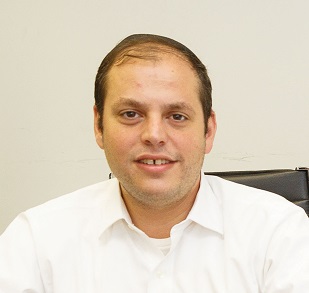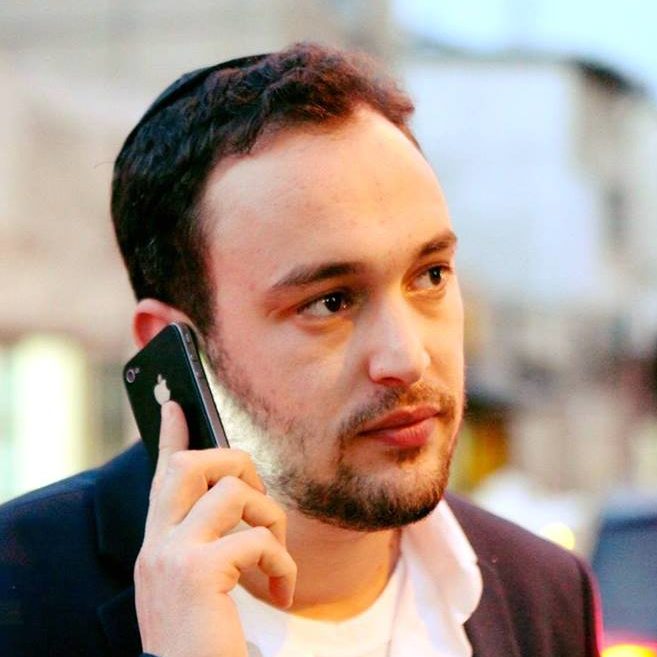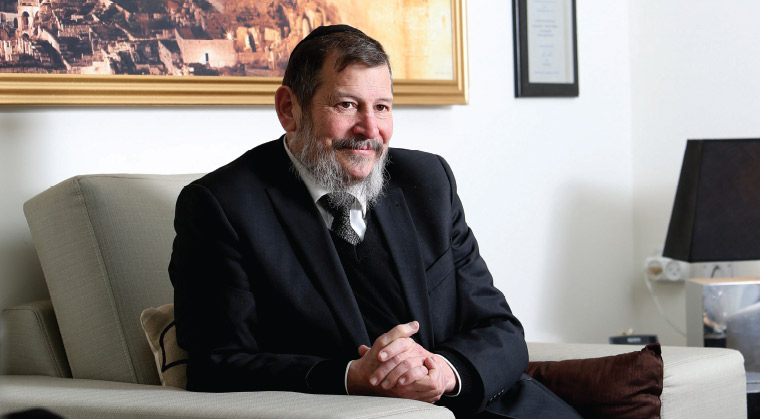The Best Medicine


Former Jerusalem mayor Uri Lupolianski agreed to a rare interview in the wake of his latest initiative — a groundbreaking urgent-care center in the capital

"Rav Scheinberg ztz”l once told me that gemilus chassadim is like the tent of Avraham Avinu. People would enter, he would take care of them, and they would find a way to thank the Creator. We are part of that, that in our merit people thank the Creator” (Photos Eli Cobin)
I
f you know a thing or two about Israeli politics, you’ve probably wondered how an earnest Yid with the broadest smile and biggest heart in the country found himself in one of the Mideast’s prime political hotspots.
Even more astounding is that this sweet man was able to survive the aggressive, often ruthless political environment for so long, serving on the Jerusalem City Council for 14 years before becoming Jerusalem’s first chareidi mayor from 2003 to 2008. It is clear though, that today, sitting in his office in Yad Sarah, the chesed empire that he single-handedly built, Uri Lupolianski doesn’t much miss those years.
Three years after leaving his mayoral post, he was dragged through the political swamp as part of an indictment with 17 others for allegedly helping advance various real estate ventures in the capital back in the 1990s when he served on the city council. Unlike the other defendants, however, Lupolianski never put a shekel into his own pocket, and his six-year sentence was commuted to six months of community service — even the strictest judges couldn’t see this selfless communal advocate actually doing jail time.
Since extricating himself from the legislative quicksand, he has avoided publicity like fire, preferring to retreat behind the scenes to do what he knows best: helping other people.
Lupolianski, camera shy as he’s become since leaving the prying eyes of a cutthroat media, agreed to a rare public interview in the wake of his latest groundbreaking initiative for the public good — the inauguration of the Yad Sarah emergency room, a state-of-the-art urgent-care center with some of the world’s most advanced equipment, and an easier alternative to the hospital emergency room. The center, funded by Aharon and Ruth Frankel, is the newest venture of the massive chesed organization Lupolianski established out of his home some 40 years ago — which today operates over 6,000 volunteers in 103 branches across Israel. Up to 80 percent of the country’s residents have been assisted at least once by the services Yad Sarah offers.
But in his own eyes, Lupolianski — or Reb Uri, as he is fondly known — still sees his living room in Jerusalem’s Sanhedria Murchevet neighborhood as the nerve center of his operation, and despite the state-of-the-art headquarters in the city center, still sees himself distributing inhalation machines and other medical apparatuses to people who knock at his door.
Of course, the new community-friendly urgent care center is in a totally different league, but for Reb Uri, it’s a natural progression of the trend he started back in 1976.
“For years, we led a revolution in the quality of care being given to the community,” Lupolianski says. “At a certain point we realized we had to do something about the shortage of beds in Jerusalem’s emergency rooms. It affects both the hospitals and the residents. For 40 years, we’ve been working to reduce the amount of time a person spends in the hospital. This was a natural extension of our approach. The new center is already easing the pressure on the emergency rooms, providing the fastest and best quality care in cases of non-catastrophic urgency, sending people home in 20 minutes instead of three hours, and reducing the danger of contagion at the crowded hospitals.”
After everything he’s gone through, including a bout with serious illness, did he really need the headache of this massive project, entailing the employment of medical and administrative teams, and, of course, the solicitation of millions of dollars?
“Well,” he says, the trademark shy smile spreading across his face, “we’re taught that as long as the candle is burning, one can still rectify. I’m still burning, even if they tried more than once to extinguish me, and therefore I’m using the strengths Hashem granted me to help with the medical needs of Am Yisrael. If I have the ability to launch another initiative, another innovation, then how can I not do it?”
(Excerpted from Mishpacha, Issue 706)
Oops! We could not locate your form.







